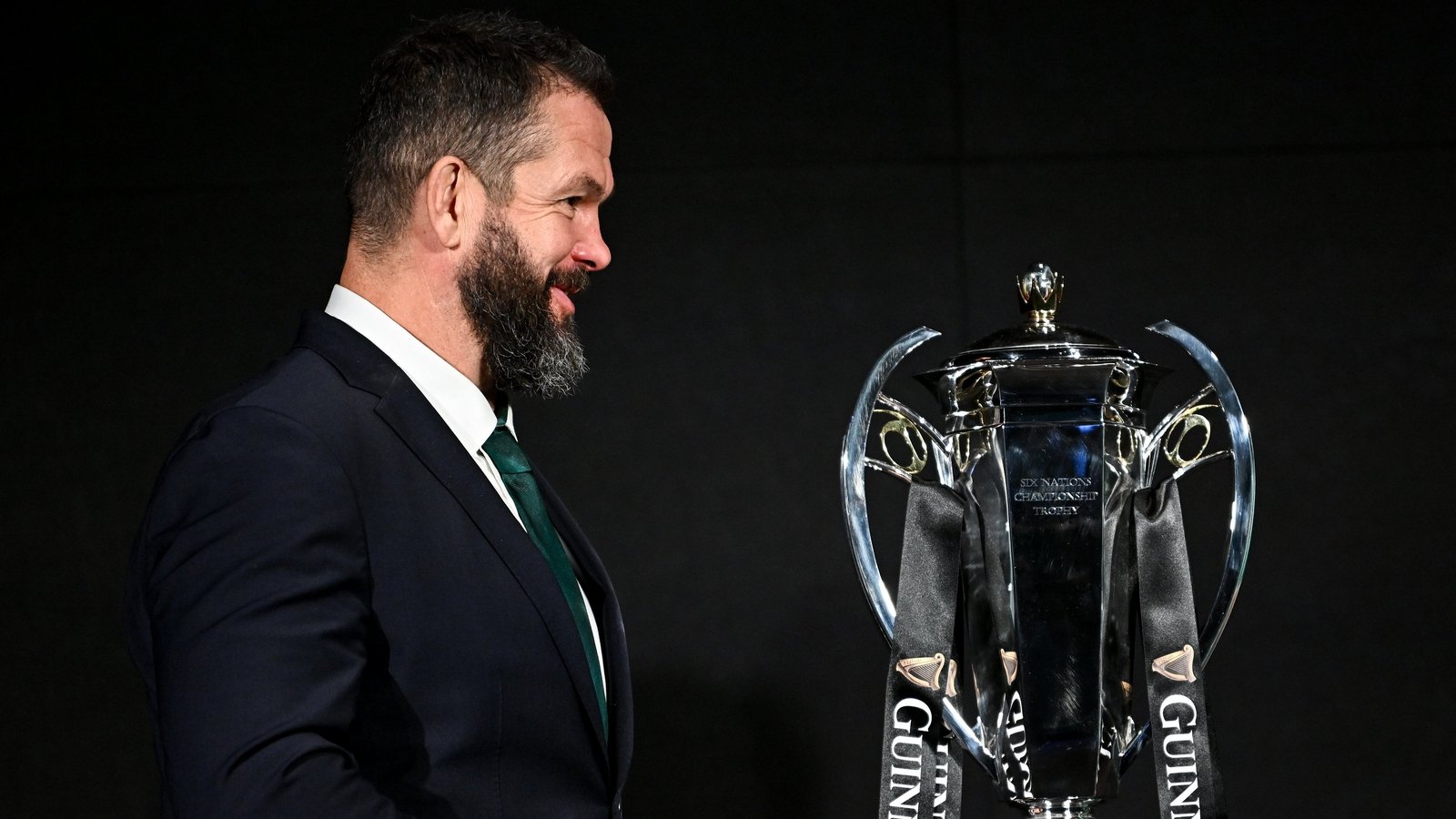It seems like only a few short weeks ago that Ireland’s World Cup dreams came tumbling down at the Stade de France.
It’s been three-and-a-half months since their World Cup journey ended in Paris, and while those scars are probably yet to fully heal, the game waits for nobody. The international season is back upon us.
Every Guinness Six Nations sees new faces and new storylines, but the 2024 chapter has change around every corner. From an Irish point of view, this will be the first international season without Johnny Sexton since 2009, as Jack Crowley looks to inherit the number 10 jersey as seamlessly as the former Ireland captain did from Ronan O’Gara all those years ago.
Like Ireland, France will be looking to pick up the pieces following their own quarter-final disappointment at the World Cup, and like Ireland they will be doing so without their most important player of recent years, with Antoine Dupont (below) pivoting to the Sevens set-up ahead of the Olympic Games. Unlike Ireland, the world’s best player will be back in 2025.
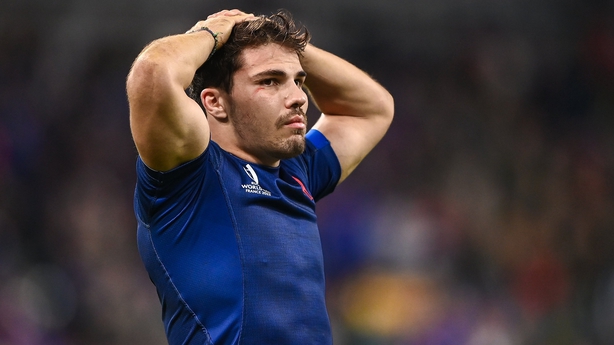
England’s back-door route to a bronze medal at the World Cup has raised expectations of a return to form, while the arrival of Felix Jones into Steve Borthwick’s set-up has seen a shake-up on the coaching ticket. Owen Farrell’s decision to step aside from Test rugby marks the end of another era.
Gregor Townsend’s quest to bring Scotland from being the best-of-the-rest to being genuine contenders again continues. Unlike other sides, there haven’t been many significant changes in the Scottish set-up since the World Cup, but the same questions still remain.
Warren Gatland will be hoping his new broom approach before the World Cup will have given his side a head start on others, while Italy are starting from the bottom once again, with Argentinean Gonzalo Quesada the only new head coach in the tournament.
Ireland
Andy Farrell stressed that he doesn’t buy into the idea of the “four-year cycle” of Rugby World Cups at last Monday’s Six Nations launch, and it’s clear that the changes to his team between now and Australia in 2027 will be made piece by piece.
While the Ireland coach included rookies Oli Jager, Sam Prendergast and Tom Ahern as additional training panelists – the latter of whom has since had to withdraw due to injury – the defending champions’ main squad is the only one not to contain any uncapped players.
The coaching ticket is also as it was for the Rugby World Cup, with Farrell supplemented by Paul O’Connell, Simon Easterby, Mike Catt and John Fogarty. That continuity in the coaches box won’t last long though, with Catt departing his role in the summer, and Leinster’s Andrew Goodman replacing him as the attack specialist.
The continuity in the playing personnel may well have been dictated by the one major change, with a new out-half tasked with replacing the irreplaceable Johnny Sexton (below).
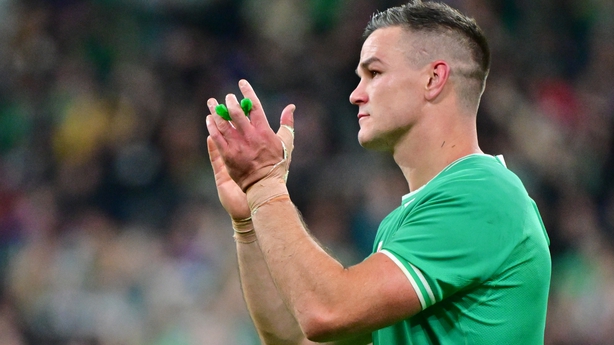
Barring injury at this week’s training camp in Portugal, that responsibility looks likely to fall on the shoulders of Munster’s Jack Crowley, who has been drip-fed nine caps over the last 15 months.
While Crowley will fill Sexton’s out-half jersey, Peter O’Mahony will fill the captaincy role, and the veteran flanker will be a dependable leader for Farrell, having done so on several occasions in the past.
As always in an even year, Ireland’s away trips to France and England make their title prospects look difficult on paper.
The starting XV for that opener against France in Marseille should be broadly similar to the side that began the quarter-final against New Zealand, but one other definite change will be on the right wing, where injuries to Mack Hansen and Jimmy O’Brien have opened the door for one of Calvin Nash, Jordan Larmour or Jacob Stockdale to stake a claim on the 14 jersey.
In the pack, Joe McCarthy looks like being the most likely breakout player, with the 22-year-old having imposed himself on the Leinster starting XV in recent months, while establishing another long-term loosehead option to supplement Andrew Porter will also be vital.
From a gameplan perspective, the lineout will be the number one priority.
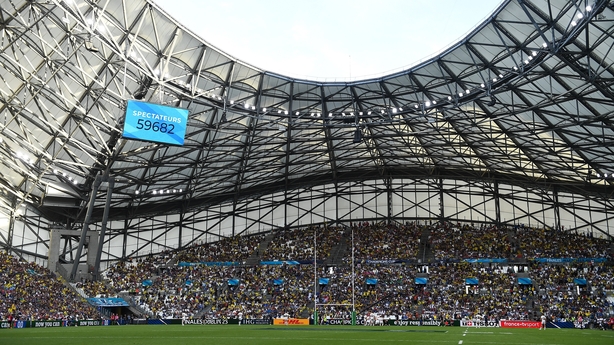
France
If we thought the quarter-final post-mortem was tough in Ireland, it will have been brutal for the hosts France, who had been building for four years towards their home tournament.
There are plenty of changes to the French side both on the pitch and off it; assistant coaches Laurent Labit and Karim Ghezal have left and been replaced by Patrick Arlettaz and Laurent Sempere, but the biggest change comes behind the scrum.
Antoine Dupont’s decision to take a break from the XV-a-side game in order to chase an Olympic Sevens dream shook the rugby world when it was announced late last year, but it appears his decision had been known well in advance by Fabien Galthie.
La Rochelle number 8 Greg Alldritt has been installed as captain, while Maxime Lucu will be tasked with filling Dupont’s shoes behind the scrum. Finding a like-for-like replacement for Dupont is a wasted venture, but the Bordeaux-Begles scrum-half has been in exceptional form in both the Top14 and Champions Cup this season, and will most likely pair up with his clubmate Matthieu Jalibert in the half-backs.
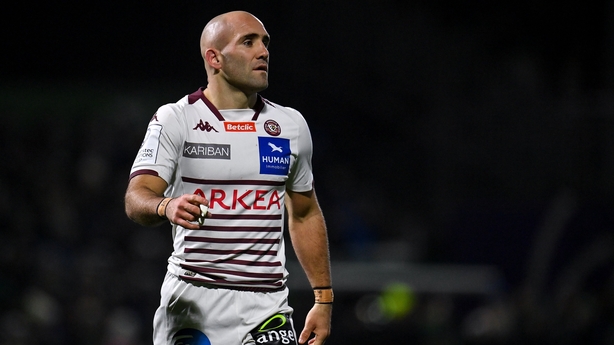
Uini Atonio has made a U-turn on his retirement plans, and the tighthead is coming back for another campaign, but their preparations have been dealt a blow in recent days with flanker Anthony Jelonch ruled out of the tournament with a long-term knee injury, while Toulouse’s colossal uncapped second row Emmanuel Meafou is set to miss the opener against Ireland after picking up a knock last weekend.
The Australia-born Meafou was one of six uncapped players named in the original French squad last week, along with centre Nicolas Depoortere, back-row Esteban Abadie, lock Matthias Halagahu, out-half Antoine Gibert and scrum-half Nolann Le Garrec, while Toulouse back-row Alexandre Roumat has since been added to the rookie list.
With Stade de France out of commission due to the Olympic Games preparation, the 2022 Grand Slam champions will be taking the show on the road this year, hosting Ireland in Marseille, taking on Italy in Lille, and welcoming England to Lyon on the final weekend, with trips to Scotland in Round 2 and Wales in Round 4.
Scotland
Like Ireland and France, Scotland will have had good reason to be aggrieved at their Rugby World Cup draw, but even accounting for their difficult pool stage opposition, Gregor Townsend’s side barely landed a glove on the Springboks and Ireland.
In recent seasons, the Six Nations has followed a similar pattern for the Scots, who have started the championship by beating England in each of the last three seasons, only to taper off as the championship progressed.
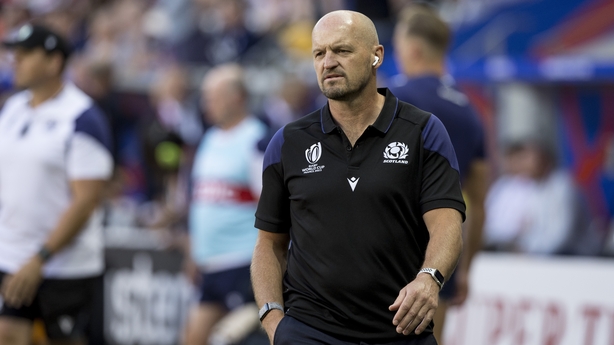
In 2024, the fixtures list has seen a reshuffle and Scotland will face Wales away in Round 1, and that change will do them no harm.
Having the Calcutta Cup game against England so early meant they were match sharp in the first week of February, but too often they’ve struggled to match that physical and emotional peak as the tournament progressed.
The coaching ticket remains in place, with Steve Tandy, John Dalziel and Pieter de Villiers working alongside Gregor Townsend, and the playing squad is largely unchanged, with Blair Kinghorn having comfortably settled into the full-back shirt that Stuart Hogg’s retirement left vacant before the World Cup.
Another captaincy change sees Russell and Rory Darge sharing the responsibility, with Jamie Ritchie losing the role since the World Cup.
Tipperary-born Ben Healy looks set to feature regularly in the matchday squad as Finn Russell’s back-up, with Adam Hastings’ injury troubles continuing. Healy has been the standout 10 in the BKT United Rugby Championship this season, starting 11 of Edinburgh’s 12 games in all competitions, and kicking 110 points.
Last year’s third-place side will have to play without wing Darcy Graham for the opening two games of the tournament after he picked up a quad injury, ruling him out of the games against Wales and France at least, while Grant Gilchrist will also have to sit out the trip to Cardiff after copping a one-game ban.
Those absences will ask the biggest question of Scotland, whose strength in depth has been the achilles heel in recent seasons.
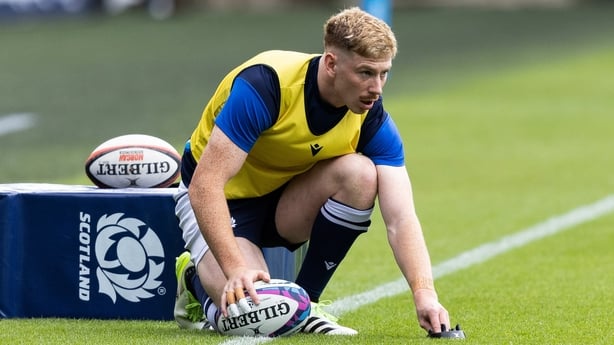
England
England may have defied expectations in reaching the World Cup semi-finals, but a look under the bonnet shows that Steve Borthwick’s side will have to improve significantly if they’re to make that level of performance the standard.
Similar to Warren Gatland at Wales, Borthwick was thrown into the deep end when he was appointed as head coach a month before last year’s championship. Even at 6ft 6in, the former Leicester boss looked like he was struggling to keep his head above water before that World Cup run.
While there’s still plenty of creases for them to iron out, their hard, gritty performance against South Africa in the semi-final gave a clear window into what they can be. They may not be the prettiest team to watch, but if their forwards can work as a unit and their discipline remains intact, they have the physicality to trouble anybody.
The arrival of Felix Jones (below) as defence coach could prove to be a masterstroke, with the Irishman having played his part in two World Cup wins with the Springboks, while experienced New Zealander Andrew Strawbridge has also been drafted in as a consultant for the first few rounds.
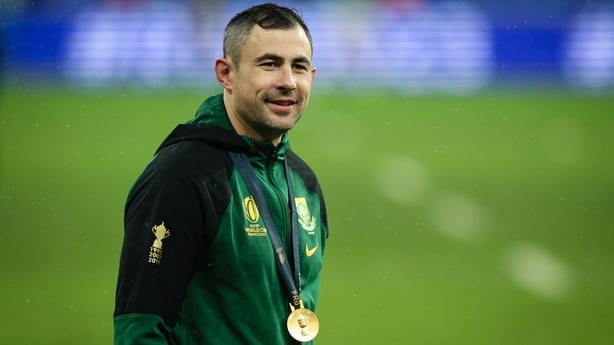
On the pitch, there’s a clear changing of the guard. Owen Farrell’s decision to step back from Test rugby, and his subsequent move to Racing 92, has led to the biggest change on the pitch for them, with hooker Jamie George installed as captain.
As well as Farrell’s departure, England have lost a lot of experience since the World Cup through a variety of reasons. Ben Youngs, Courtney Lawes and Mako Vunipola have retired from Test rugby, Tom Curry and Manu Tuilagi miss out with injury, while Kyle Sinckler and Billy Vunipola didn’t make the cut for Borthwick.
Among several uncapped players, Immanuel Feyi-Waboso of Exeter Chiefs is the most talked about, after the 21-year-old wing chose England over his native Wales.
Opening games away to Italy and home versus Wales afford Borthwick’s side the opportunity to settle into the championship.
If they can do so, they could be a dangerous side with momentum ahead of hosting Ireland and travelling to France in the final rounds.
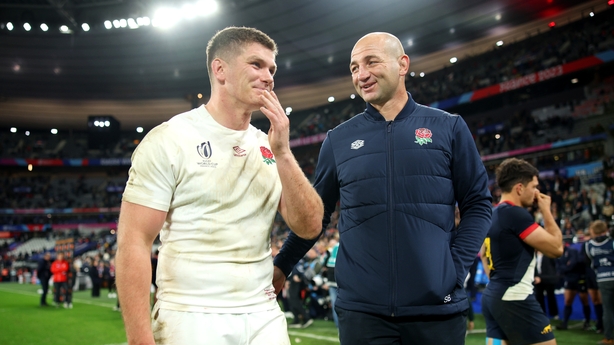
Wales
Warren Gatland will be hoping that his second season in charge (of his second spell in charge) goes better than his first.
A win away to Italy in Round 4 spared what could have been a wooden spoon, while their campaign was followed by the black cloud of a potential players strike, due to the governance issues in the WRU.
Having gone into the World Cup warm-up games last summer with many predicting a pool stage exit, the fact that they were left to rue a quarter-final exit to Argentina shows there has been considerable progress in the last 12 months. They may not be among the game’s elite right now, but their World Cup performance showed that they know what they are.
To Gatland’s credit, the New Zealander hasn’t been afraid to make big calls since returning to the Welsh job at the start of last year, and the sweeping changes to his squad over the last 12 months illustrate that.
Of the 34 players named by Gatland in his squad last week, only 14 were involved in the 2023 campaign. Five of the squad are uncapped, with a further eight players in line for a Six Nations debut. An average age of just 25 sums up the extent of the rebuild at the Principality Stadium.
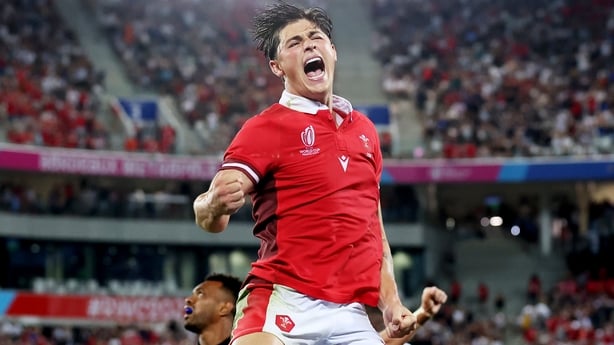
If the challenge facing Wales this year looked big, the sudden departure of Louis Rees-Zammit could cripple them. The 22-year-old made the shock announcement just under two weeks ago that he would be leaving rugby with immediate effect in order to try his hand at breaking into the NFL, with Gatland finding out the news just a couple of house before announcing his squad.
If there’s a good news story, it’s the return of Rob Howley, who has been reappointed as a technical coach four years after his ban for breaching betting regulations.
Make no mistake, this is a Wales team building their way up from the bottom, and avoiding a wooden spoon might just be as good as it gets for now.
Italy
It’s becoming a Six Nations tradition to refer to Italy being at the start of a new era, but here we are again.
The perennial strugglers looked like a team making real progress during last year’s championship, running France and Ireland close in Rome, but one disappointing display at home to Wales ultimately saw them pick up yet another wooden spoon.
As such, it came as a real surprise in the summer of 2023 to learn that the Azzurri would be replacing head coach Kieran Crowley after the World Cup, to be replaced by Argentinean Gonzalo Quesada (below).
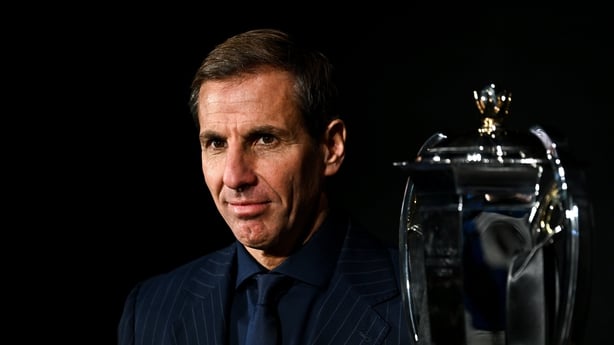
Fears that Crowley would be a lame duck in the World Cup were realised, and after shipping a combined 156 points to New Zealand and France in Pool A, it undid much of the good work they had built up over the previous couple of seasons.
Quesada has been well-travelled as a coach with the highlights being leading Stade Francais to a Top14 title in 2015, before taking Jaguares to the Super Rugby final in 2019.
Exeter back-row Ross Vintcent is among five uncapped players in the squad, with the former Italy U20 captain having played all but two games for the Chiefs this season, while he also scored a try in their big comeback win against Munster in December.
With 17 of the squad coming from a Benetton team that have climbed up to second place in the URC, there is some cause for optimism about the long-term future for Italy. The short-term looks as tough as ever, with England at home, Ireland away and France away their first three games of this championship.
Listen to the RTÉ Rugby podcast on Apple Podcasts, Spotify or wherever you get your podcasts.
We need your consent to load this YouTube contentWe use YouTube to manage extra content that can set cookies on your device and collect data about your activity. Please review their details and accept them to load the content.Manage Preferences
Follow every Ireland game in the Guinness Six Nations on RTÉ.ie/Sport and the RTÉ News app, or listen to live commentary on RTÉ Radio 1.
Watch live coverage of Ireland v Wales (24 February) and England v Ireland (9 March) on RTÉ2 and RTÉ Player.
